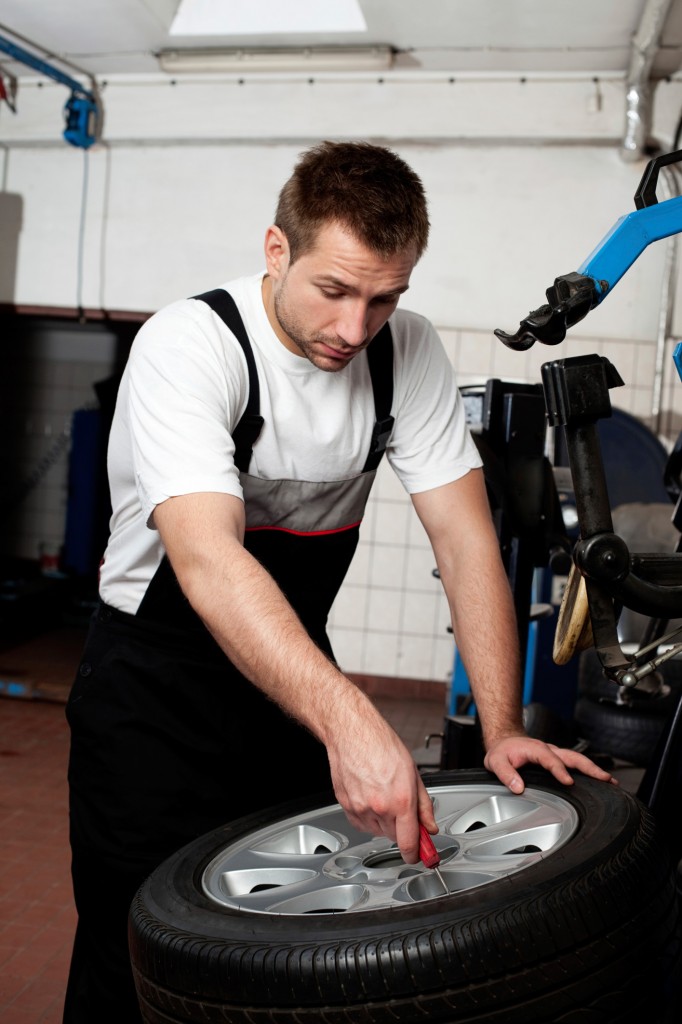 Your car is a considerable investment, second only to your mortgage. Which makes sense, considering that your car is sort of like your home away from home. If you’re like most people, you probably spend hours in it week as it ferries you back and forth from your place of work to your home, takes you on errands and to friend’s houses, and carries your loved ones wherever they need to go. Naturally, your car is something you want to take care of.
Your car is a considerable investment, second only to your mortgage. Which makes sense, considering that your car is sort of like your home away from home. If you’re like most people, you probably spend hours in it week as it ferries you back and forth from your place of work to your home, takes you on errands and to friend’s houses, and carries your loved ones wherever they need to go. Naturally, your car is something you want to take care of.
A well-maintained car is more fuel-efficient, performs better, lasts longer, retains more value, and is simply safer than a vehicle that is not maintained. Here is a checklist for keeping your car in excellent condition.
Change Your Fluids
Your oil is your most important maintenance item. Failure to change your oil and filter on a regular basis can lead to serious and expensive repairs–if not the premature death of your car. Every 5,000 miles is a safe estimate for getting an oil change, but you should change it more frequently if you are particularly hard on your engine. It’s certainly possible to change your oil at home, but the convenience and thorough service you get by taking your car to BMW of Freehold’s service department is usually worth the extra money.
Other important fluids that need to be checked and changed regularly include the transmission fluid, coolant, and power steering fluid. Transmission fluid becomes contaminated over time and must be changed according to the manufacturer’s recommended schedule. Coolant (commonly known as antifreeze) dissipates the heat created by your engine and needs to be replaced to eliminate dirt and rust that build up in the system. But be careful if you keep anitfreeze on hand, as pets are attracted to this strong chemical and can easily be sickened or killed if exposed. Power-steering fluid should be changed as the degradation of seals and O-rings in your system contaminates the system. Replacing the power-steering fluid keeps expensive elements like the power steering pump from being damaged.
Air Filters
The air filters get dirty fairly quickly and thus and needs to be replaced frequently. A dirty filter lowers the amount of air your combustion chamber can pull in and increases your fuel consumption. It causes your engine to run hot, degrading other interior parts, particularly those made of plastic. Check and replace your air filter often; the price of the filter is worth the increase in gas mileage alone.
Brakes
This incredibly important automotive element is often ignored by drivers, at their peril. The braking system is basic and vital to the operation of a car. If your car’s brake light starts flashing; the brakes begin making unusual noises; it takes longer for the brakes to fully engage; your steering wheel shakes; brake pedal pulses; or the car pulls to one side when you stop, you absolutely need to have your brakes checked.
Drive Axle Boots
The drive axle boot is a rubber cover than protects your drive axle joint, often called the constant velocity or CV joint. The rubber boot degrades over time, and if the boot is not replaced, the joint will suffer–and replacing the CV joint is expensive. It is easy to visually check the boot cover and see if it is damaged. Replace it quickly to avoid expensive damage to your CV joint.
Drive Belts and Timing Belt
The rubber drive belt in your car is what powers the water pump, power-steering pump, a/c pump, and other internal components. Most modern cars have one belt, called a serpentine belt, that powers everything, but older cars are equipped with individual belts for each accessory. The timing belt, meanwhile, is a crucial part of your car’s internal combustion engine that belt that manages the timing of the engine’s valves. (Some manufacturer’s utilize a timing chain instead of a rubber belt). Both the drive belt and timing belt decay over time and need to be changed when they are damaged. Have your service technician check your belts regularly and change them when recommended. Engine damage will be the result if you do not.
Rotating Tires
You will be chided by your mechanic if you fail to rotate your tires. Rotating the tires increases the longevity of your tires by ensuring that they wear more evenly–and having evenly worn tires improves the handling of your car. There is a major safety concern if you don’t rotate your tires, as doing so also prevents blowouts from eventually occurring. It is generally a good idea to have your tires rotated at every other oil change, or when the car is already jacked up for other reasons to save money.
Tire Pressure
Carry a tire pressure gauge and check your tire pressure often. Tires that are too high in pressure tend to bounce on the road, and tires with low pressure wear out sooner or overheat, causing tread separation, and can lead to a blowout on the road. Keeping your tire pressure at the right level, which will fluctuate with changes in temperature, will keep your ride safe and ensure that your tires last longer.



